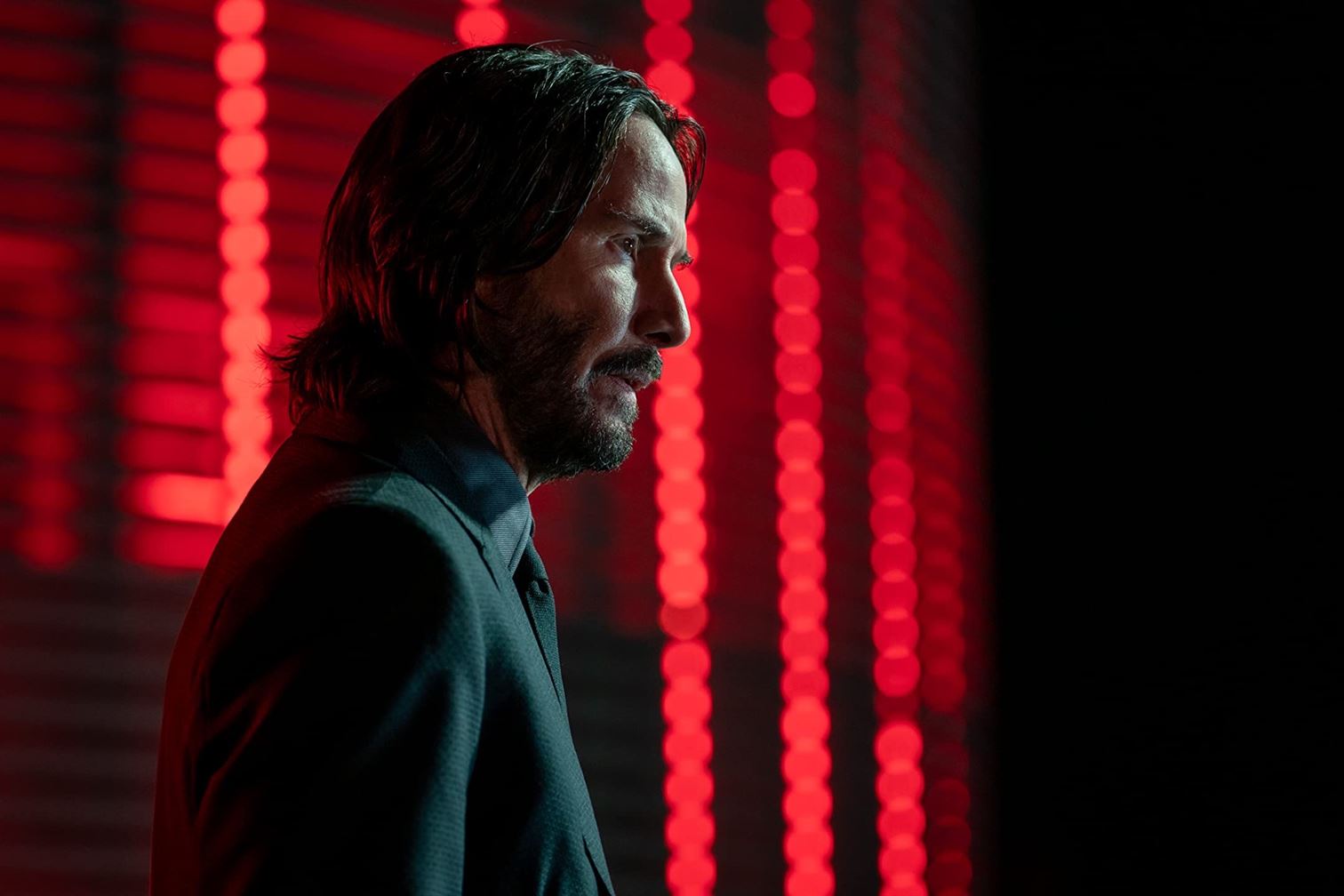When “John Wick” hit theaters in 2014, it was a breath of fresh air, both for the career of its charismatic star and the action genre as a whole. But that same sense of refreshment is lacking in the film’s sequels, which stray from its initially simple, somewhat relatable and almost humorous premise to focus more on the increasingly exhausting lore of the series’ criminal underworld.
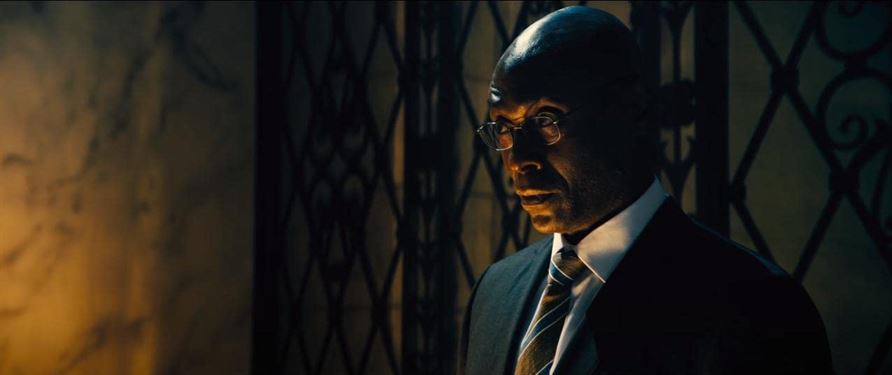
The late Lance Reddick as Charon, in one of his final film roles.
Photo courtesy of Lionsgate
The series hits a new low with “John Wick: Chapter 4,” which plays out as if ChatGPT were prompted to write Reddit’s favorite movie.
In its opening scene, the film pays visual homage to “Lawrence of Arabia,” an indication of how long and arduous this journey will be. Gone is the tight, economic pacing of its predecessors, as this fourth installment runs a whopping 169 minutes, padded out by conversations where characters speak in low, husky voices with long, dramatic pauses or long establishing shots to bask in the (admittedly, incredibly impressive) production design.
In fact, as a whole, the film is impeccably crafted. The fight choreography and stunt work make the strongest argument since 2015’s “Mad Max: Fury Road” for the Oscars to include a stunt category. The production design is beautiful, exemplified by the neon-bathed lighting and impressive cinematography. Everything is so immaculate that it’s hard to believe the film is as vapid and empty as it really is.
But unfortunately, the film’s screenplay is hurt by a number of baffling choices, all of which seem to have the end goal of making the film and its action as boring as possible. So much of the movie is spent talking about the “rules” of the criminal underworld that it plays more like a bad courtroom drama than the high-octane thriller it supposedly is.
Further holding the action back are the characters’ bulletproof suits, which reduce the effect of gunshots to simply make the film louder. So much of the action lacks any actual weight that even once the film kicks into gear in its final 20 minutes and delivers an absolute knockout climax, it’s too little, too late.
The performances in the film range from “great” to “you’re a fantastic actor until you open your mouth, Keanu.”
Keanu Reeves deserves the renaissance he’s gotten from this franchise, but whether it’s bad direction, exhaustion or him simply being on autopilot, he delivers one of his weakest performances in this film. John Wick, as a character, doesn’t really talk much, which makes every bad line from Reeves that much more jarring.
Most of the other performances in the film aren’t really noteworthy. Laurence Fishburne, Bill Skarsgard and the late Lance Reddick all turn in very good performances but are severely underutilized.
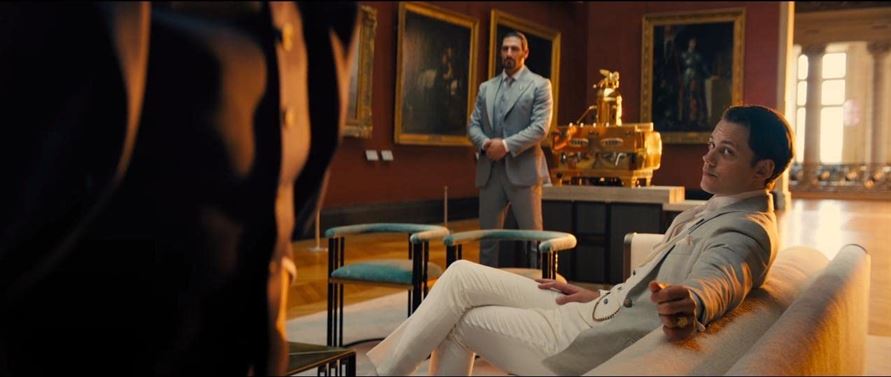
The Marquis Vincent de Gramont (Bill Skarsgard) is a villain with more syllables in his name than interesting traits or motivation.
Photo courtesy of Lionsgate
Only one actor in the film shines above the rest: Donnie Yen. Yen acts circles around every other actor he shares the screen with as a blind, retired assassin brought back into the fold to hunt down John. He’s the only actor who delivers his lines like a human being instead of a “Saturday Night Live” parody of an action hero. His natural, confident screen presence is a welcome addition to the hyper-stupidity this film peddles for much of its runtime.
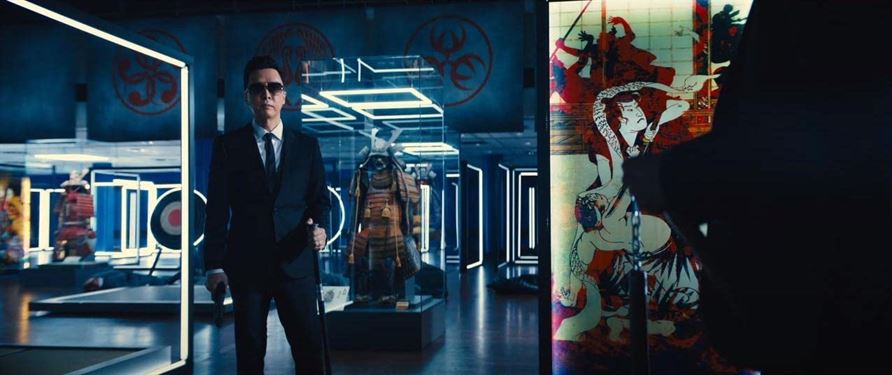
Donnie Yen plays Caine, the film's standout performance.
Photo courtesy of Lionsgate
But perhaps the strangest and most unsettling aspect of this installment is its treatment of female characters. Now, there’s no expectation for a big-budget action film to be some grand feminist statement (although the aforementioned “Fury Road” does exactly that to masterful effect), but there are few films that exemplify the concept of the “male gaze” as garishly as this.
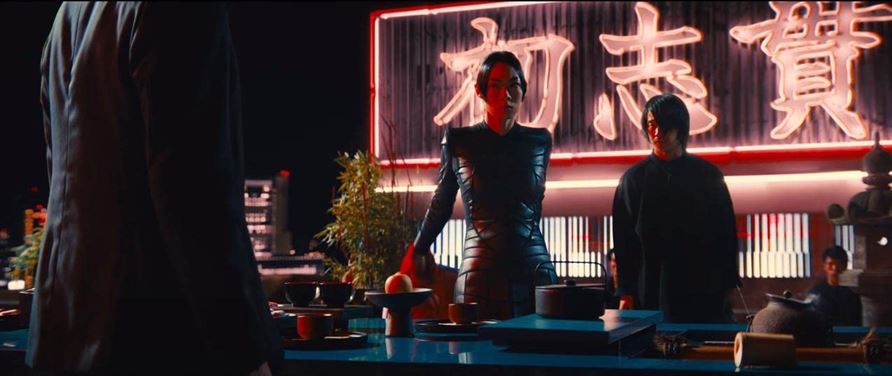
Akira (Rina Sawayama) is one of the film's numerous underserved women.
Photo courtesy of Lionsgate
The franchise has always somewhat carried the feeling of being an angry man’s power fantasy, but in this film in particular, women are not characters; they are objects, meant to be mourned or protected, or tools to deliver exposition in a sexy way. Of the three women with speaking roles in the film, only two have names, whereas the third is simply a radio DJ, shot only in closeups of her lips and hands as she delivers information about John’s location in a sultry voice in the third act. While it’s hardly as overt or objectifying as something like how women are treated in Michael Bay’s “Transformers” films, it wouldn’t feel out of place in those movies, either.
All in all, “John Wick: Chapter 4” is an unwieldy mess of a film. It’s too long, with an overwritten world, underwritten characters, ill-conceived action and an odd misogynistic undercurrent. It makes an incredibly strong case for more award recognition for stunt coordination, and an equally strong case for this series being far too much of a once-good thing.

